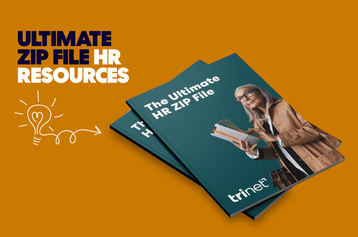
Historically, the Human Resources (formerly Personnel) Department was created to shield businesses from their employees. As companies responded to new and expanding laws that protected the rights of workers, HR teams worked to assure compliance. Often considered at odds with their own staff members (definitely not pro-employee), HR was, until fairly recently, the company buzzkill. These were the people you didn’t want at office parties — the colleagues whose entrance in a room caused a hush to come over the crowd. They may not have had a seat at the boardroom table until recently, but they were management, nonetheless.
The mission of People Ops is to optimize employee experience and engagement.
Today’s businesses have shifted to a new mindset: these are the days of People Operations teams, working strategically within or outside the HR Department. Their mission is to optimize employee experience and engagement. The result — higher productivity and a more robust bottom line. People Ops team members are pro-employee, recognizing every employee has a critical role in the success of the organization. The newest version of HR can be for the employer and the employee at the same time. Often, however, it takes a bit of finesse to walk the line between advocating for either or both.
Regulatory responsibility
Compliance is a necessary function of HR. There are a myriad of laws and regulations from the federal, state, county, and local level that must be understood and adhered to. The rules are generally the same from the smallest business to the largest international conglomerate. Employees’ rights are to be protected without fear or favor. For the HR professional in charge of compliance, the responsibility is solemn. Not only are they protecting the rights of the workers, but they also shield the business from potential harm. There is no wiggle room: the rules are the rules.
Employee advocate (being pro-employee)
The HR professional, likely a People Ops professional in today’s terms, in charge of employee satisfaction, spends their time advocating for workers. They look for ways to enhance employee experience and provide access and tools for growth and development.
Empowered employees are generally happier and more productive.
These team members reverse-engineer company and staff strategic goals. Working from the endpoint backward, they find pathways to meet objectives at the individual, team, and company-wide level. Their responsibility lies with empowering employees, always with an eye to benefitting the company.
Where they intersect
What’s good for employees is good for business. Here the two work cooperatively to assure employee rights are protected. This positions staff members in the best possible environment to do be their authentic selves and do their best work. Where advocacy and compliance align, the culture of the organization is one of respect and professionalism. Protections put employees on a level playing field — no staff member’s rights or responsibilities are any more or less important than another’s. The C-suite answers to the same regulatory requirements as the newest unpaid intern. The untrained new hire has the same opportunity for growth and empowerment as a senior executive. Equally protected and equally empowered is the intersection HR and People Ops professionals can work to support each other and employees. When surveys reveal areas of concern, People Ops turn to their HR colleagues to deal with compliance failures. Where turnover is high, data-driven analysis can find pain points and causation.
Where they divide
Pro-employee HR professionals may be champions of parties and celebrations. They look for reasons to revel in employee and company achievements. For compliance officers, these can be a minefield. Observing workers who party too heartily or overhearing indiscreet comments may spark the beginning of an investigation. Was that flirting you noticed unwelcome? Should you intervene? It takes a discerning HR professional to know what:
- Is immediately actionable
- You need to file away for future reference
- You can ignore
The advocate looks for opportunities for employees to let their hair down and establish meaningful connections with colleagues. They encourage networking within and outside teams. The compliant watches for areas where employees may cross the line. They encourage networking, but want to assure no matter how congenial, it stays professional.
An employee advocate encourages networking but ensures it stays professional
The advocate encourages personal relationships — understanding employees who have friends at work are more highly engaged. The compliant monitors that relationships don’t sour to discord, harassment, or worse.
Being pro-employee and pro-compliance: How they work in harmony
Today’s People Ops/HR professionals marry both compliance and advocacy. HR 2.0 is strategic in empowering workers and giving them the tools they need, simultaneously assuring all their rights are protected. When systems work in tandem, they create a culture that benefits the business top-down and bottom-up. To be pro-employee and pro-business, advocating for shared values must be deliberate and planned. Protecting employee rights and maintaining an organization that’s professional shields staffers and organizations from harm. Supporting workers’ needs and wants, on the job and often off, empowers their growth and benefit as well as the company’s.
This communication is for informational purposes only; it is not legal, tax or accounting advice; and is not an offer to sell, buy or procure insurance.
This post may contain hyperlinks to websites operated by parties other than TriNet. Such hyperlinks are provided for reference only. TriNet does not control such web sites and is not responsible for their content. Inclusion of such hyperlinks on TriNet.com does not necessarily imply any endorsement of the material on such websites or association with their operators.






